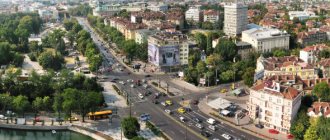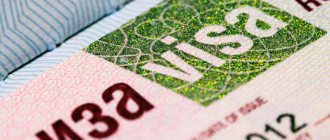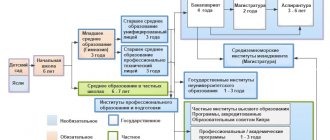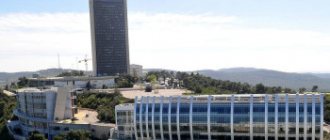Primary basic education
Local students or children of foreigners who have managed to obtain citizenship are guaranteed a full school course. You may prefer to obtain knowledge in a private institution over free education at a public school. The cost of the annual course is 1000 €.
Parents have the opportunity to send their child to kindergarten. For those seeking quality preschool education, Bulgaria provides a wide choice of public and private institutions. At the initial stage, children study for 4 years. From 4th to 8th grade they receive secondary school education. Students are provided with general basic knowledge.
Structure of education in Bulgaria
As in Russia and the CIS countries, children in Bulgaria go to first grade at the age of 7. Until the age of 16, they receive compulsory school education, which is divided into two levels - primary (4th grade) and secondary (5th to 8th grade). You can study for free in public schools, but in private schools you will have to pay for each year of your child’s education. After studying for 9 years, teenagers decide to continue their education at school and then get a diploma at the university, or go to college and master some profession. Having decided to stay in school, the student needs to choose what he wants to study next and enroll in a specialized class (selection based on the results of the entrance exam).
The academic year in Bulgaria is divided into two semesters – winter and summer. The winter semester begins in mid-September and lasts until the end of January, with a break for the Christmas holidays, the summer semester - from February to June. Universities start studying a little later – in October.
The assessment system in Bulgaria is five-point, where 6 is the best score and 2 is the lowest. To receive the minimum passing score, the student must answer half of the exam questions correctly. Good studies in Bulgarian schools are rewarded with certificates and awards.
Assessment system in Bulgaria
Secondary education
The full course ends after 12th grade. At the last stage of school education, students are divided into profiles. After 8 years of school, you can master one of the blue-collar professions at a technical school. The course of study here is 3-4 years. Therefore, after that you can go to university without losing years. Secondary specialized institutions and schools in Bulgaria operate according to the following principles:
- the main language of instruction is Bulgarian;
- issued certificates and diplomas are accepted anywhere in the EU;
- the academic year begins on September 15 and ends at the end of May or the last days of June;
- training is carried out according to a 6-point system;
- Already from the 2nd grade, learning English begins, and from the 5th grade a second foreign language is added.
The quality of education in Bulgaria is considered good. The provided base is sufficient for successful studies at European universities and starting a career.
Schools for Russians
There is an educational institution at the Russian Embassy that operates entirely according to the Russian program. There are other similar institutions on the territory of the Republic; it is possible to pass the State Examination and the Unified State Exam.
A Russian school in Bulgaria was opened at the embassy in Sofia. Several similar establishments operate simultaneously in other cities. Russian schools in Burgas and Varna provide good education by Russian standards. However, the programs are not so adapted to the pan-European one. The problem is solved by teaching children in regular Bulgarian schools, but with in-depth study of Russian.
Education system
You can safely move to Bulgaria with your family, as there are all conditions for education for both small children and school graduates. The educational system is developed. There are both public and private institutions. Different levels have their own requirements for foreigners: in some cases it is possible to study for free, but this is not always possible. The Bulgarian Ministry of Education and Science puts forward strict requirements for all educational institutions. Including private ones, general standards must be observed when drawing up programs.
Preschool
There are public and private kindergartens in Bulgaria. Only the first ones are almost impossible to get into: there are long queues. However, they are not free: tariffs are different for visitors and local citizens. Private kindergartens are more expensive. But they also know how to attract parents. As a rule, they are more modern and well equipped. Additional developmental programs are also included in the curriculum.
Read also: Moving to Bulgaria How to get a residence permit in Bulgaria
Secondary education
In Bulgaria, it is customary to divide education in schools into several degrees. The first, primary, includes from 1st to 4th grade. Then the children are required to study for another 4 years - this is called pre-gymnasium education. After this stage, they take exams on knowledge of the Bulgarian language and mathematics, then the child chooses a gymnasium of a certain direction. Studying in Bulgaria at school is considered complete after the 12th grade.
Higher education institutions

Local universities attract quite a lot of interest from visitors. Although their activities are regulated by general laws, they are completely autonomous. Universities can be both private and public. Higher education in Bulgaria is a rather complex system. It is customary to divide establishments at this level into three broad groups:
- university;
- specialized higher school;
- college.
A university can be called an institution where at least three main fields of science are studied. There are strict requirements for it: at least 70% of lectures must be given by certified persons and teaching staff who work on a permanent contract.
The peculiarity of a specialized higher school is that it teaches one of the main types of science. At the same time, it is characterized by scientific research and artistic and creative directions. Colleges offer bachelor's degrees.
Which option should you choose for your studies? It is worth recalling that work in Bulgaria is a weak point of the state. It is not so easy to find a job, especially for newcomers. So the direction and type of institution should really be chosen carefully, taking into account the trends of the vacancy market.
How to enter college
To successfully become a student in Bulgaria, you have to make a timely decision about where to study, collect and submit documents. This can be done as early as mid-summer. Since universities review the papers and make a decision, they accept the applicant for training before the start of the educational process. And it starts in different ways: approximately from September 15 and over the next month. But some institutions recruit twice a year. The second time, in February, they admit students, focusing on immigrants from Asian countries.
Collection of documents

The key point is preparing a package of papers. What documents do Bulgarian universities require? You will need to fill out a form and attach a copy of your passport. It is necessary to obtain a medical certificate and have it translated into Bulgarian, certified by a notary. You will also need a copy of your high school diploma. You will need to pass an international English language exam and attach a document with the recorded result. If the applicant previously studied at another university (for example, in his home country), he will be required to provide an academic certificate.
Higher education

The country's university system is built according to the Bologna scheme. There are about 50 establishments in the republic:
- classical universities;
- colleges;
- specialized higher schools: military, artistic or sports.
All universities in Bulgaria are independent. They are regulated by the authorities only in terms of compliance of activities with quality standards. Higher education in Bulgaria is provided according to the following programs:
- professional bachelor (up to 3 years);
- Bachelor (4 years);
- Master (5-6 years);
- doctor (the program is individual without strict deadlines).
The diploma obtained in Bulgaria fully complies with the requirements of the Bologna system.
Features of the Bulgarian education system
The structure of the country's educational system is divided into three levels: preschool, school and higher education. Preschool education is conducted in kindergartens, where attendance is considered compulsory, and lasts 4 years. The next 12 years are spent on school education: primary (grades 1-4), basic (grades 5-8) and gymnasium (grades 9-12).
Higher education in Bulgaria is based on the principles approved by the Bologna Agreement and involves students receiving the following educational degrees:
- professional bachelor (duration of study – 4 years);
- Bachelor (duration of study – 4-5 years);
- Master (duration of study – 1-2 years with a bachelor’s degree);
- Doctor of Science (duration of study – 3 years after graduation from the master’s program).
The education system in Bulgaria provides for the functioning of educational institutions of both state and private forms of ownership.
Popular Universities
The country's universities are included in European rankings. The most prestigious is the University of Sofia. Let's look at the most famous universities in the regions.
Universities in Plovdiv
The main scientific center of the region was founded in 1972. The leading university is named after Paisiy Hilendarski, an ascetic who made a huge contribution to the development of Bulgarian culture. There are strong scientific ties with leading universities in Europe and the USA. In the rankings, the university is significantly ahead of most Balkan institutions and is in 2nd place in the country. The Agrarian University of Plovdiv occupies a good position in Bulgaria. There is also a large medical university in the region.
Universities in Burgas
The main local university was founded in the early 1990s. The Burgas Free University has already established several scientific schools in computer science and other disciplines. Currently there are 7,000 students studying at the university. The second most important is the University named after Professor Zlatarov. There is a large chemical technology school here. Its importance is recognized at EU level.
Universities in Varna
This city is famous for the only university in the country that graduates specialists in the field of shipbuilding, maritime transportation and the ecology of coastal waters. The Technical Institute is characterized by high competition for places among applicants. The Varna University of Economics is famous in Bulgaria for its old library. Its funds are almost completely transferred to electronic media and are available on the Internet. A Russian center has recently opened at the Free University of Varna. There is a special attitude towards Russian students here.
Cost of education

There are no free higher education programs in the republic. However, for local residents the cost of the course is reduced to 400–600 €. Students can apply for grants or enroll in targeted programs. For a foreigner, studying in Bulgaria will cost 5,000 € for a full undergraduate course. A master's degree costs the same. Prices are almost the same in the main universities of the Republic. The most prestigious universities set the cost slightly higher - up to 7,500 €.
Tuition fees in Bulgaria
Most of all applicants are tormented by the question of how much it costs to study in Bulgaria. After all, only the high cost of education for foreigners can prevent them from obtaining a diploma. Otherwise, education in Bulgaria provides only advantages. After graduating from university, employers around the world will welcome you, and you will bring valuable experience back to your home country.
Some universities offer free programs, but to enter you will need to go through a serious competitive selection process.
The quality of knowledge is at a high level in all regions, the prestige of each university is different. This largely determines the prices for studying in Bulgaria. To reduce the cost of studying in Bulgaria, you need to decide in advance on the educational institution and specialty. Early booking always gives a significant discount.
How to proceed
The following conditions are basic for foreigners:
- complete school education;
- average certificate score – at least 62%;
- absence of medical contraindications to the chosen specialty.
Only those who have completed a bachelor’s degree in the Republic with grades no lower than “good” can enter the Bulgarian master’s program.
Entrance exams
A foreign applicant will have to undergo 9 months of training in Bulgarian language courses. If the training is in English, you will need to take IELTS (passing score - more than 6 points) or TOEFL (over 80). Enrollment of a foreigner is carried out on the basis of a language exam and school certificate.
Required Documentation
The mandatory list includes:
- statement;
- copies of passports;
- certified medical certificate;
- certificate with grades;
- a certificate from the university if the foreigner is transferred from the previous place of study;
- student visa D.
Typically, a package of documents is submitted before September 1 and is processed within two weeks before the start of the academic year.
Study visa
To obtain permission to enter Bulgaria, a student will need:
- questionnaire;
- certificate of enrollment in a Bulgarian university;
- passports;
- 2 photos of the established sample;
- certificate of registration in the tax system of the Republic;
- confirmation of the absence of debts in your home country;
- certificate of availability of housing in Bulgaria;
- registration with the country's migration department.
Visa documents are processed in about 10 days, so it is better to obtain entry permission in advance.
How to enter a university in Bulgaria? Primary requirements
To study at one of the Bulgarian higher educational institutions, a foreigner only needs to go through 4 stages:
- Choosing a university and familiarizing yourself with the conditions for enrollment.
- Preparation of documents for submitting an application to a university, fulfilling the requirements for applicants (creative competition, exam, etc.).
- Applying for a student visa type D based on a letter of acceptance to a Bulgarian university.
- Registration at a university as a student.
Requirements for admission to universities in Bulgaria may vary, but are common to all foreign applicants:
- Availability of appropriate qualifications . A foreigner must have a diploma or certificate confirming the successful completion of the previous stage of education. The average score of the applicant's certificate must be at least 62% of the maximum possible, especially in specialized subjects. In practice, the management of a particular university has the right and obligation to select its students from among the best candidates.
- Financial guarantees . The applicant must have means for self-sufficiency for the period of stay in the republic. Bulgarian universities are autonomous and independently set tuition fees for foreign students depending on the chosen specialty and level of education (bachelor's, master's, postgraduate or doctoral studies). The annual fee is divided into 2 parts: the first half is paid before applying for a visa, and the remaining half is paid at the beginning of the second semester.
- Compliance with medical criteria. A foreign citizen planning to study at one of the Bulgarian universities is required to confirm with a certificate good physical and mental health, as well as the absence of infectious diseases.
Required documents and deadlines for their submission
To enter any Bulgarian university, a foreign applicant will need:
- a completed and signed university application form indicating the level of language proficiency in which the program is offered;
- a certified copy of the high school diploma and individual grades in the most important subjects (for those applying for a bachelor's degree), or a bachelor's/master's diploma or certificate (for those wishing to study in graduate school);
- a copy of the applicant's foreign passport;
- 4 photographs measuring 3.5 x 4.5 cm, taken within 3 months before submitting the application;
- certificate of knowledge of the language in which training is planned;
- a health certificate from a reputable medical institution, issued no earlier than one month before submitting the application;
- a letter from the governing body in which the diploma, certificate or educational certificate was issued stating that the applicant is eligible to study at any higher education institution in his or her country.
The application deadline is October 1st.
Advantages and disadvantages of Bulgarian education

The main advantages include full integration of schools and universities with the EU, the opportunity to listen to lectures in Russian, and relatively high-quality education, which is quite enough for employment in the Balkans. Studying in Bulgaria, unfortunately, is not without its weaknesses:
- quite high cost of the training course;
- the need to study Bulgarian or compete for limited places in universities teaching in a foreign language;
- A Bulgarian diploma obviously has a losing position when competing with prestigious universities in Western Europe.
In general, Russians do not go to study in Bulgaria as often as in other EU countries. Many factors influence, including remoteness from the borders of the Russian Federation.
Residence permit in Bulgaria
Many migrants apply for a residence permit in the Republic in order to be able to travel to some countries under simplified visa rules. There is a whole list of countries where you can go with a Bulgarian visa. However, until the country has entered Schengen, it is limited only to neighboring powers. A residence permit allows you to study and run your own business in Bulgaria. However, it’s not easy to get hired here even with such a document. Employment of foreigners is limited at the legislative level.
Scholarships and grants
Many universities attract foreign students with various preferential programs. This usually applies to 11th graders with excellent grades and knowledge of languages. Education in Bulgaria for Russians may end up being completely free. Specific requirements for grant recipients depend on the conditions of the competition:
- The scholarship may be awarded based on the results of participation in international Olympiads;
- winners are chosen for scientific achievements;
- Sometimes competitions are held right within the walls of the university.
Organizers can pay almost all expenses for training, moving to Bulgaria and living in the Republic.











